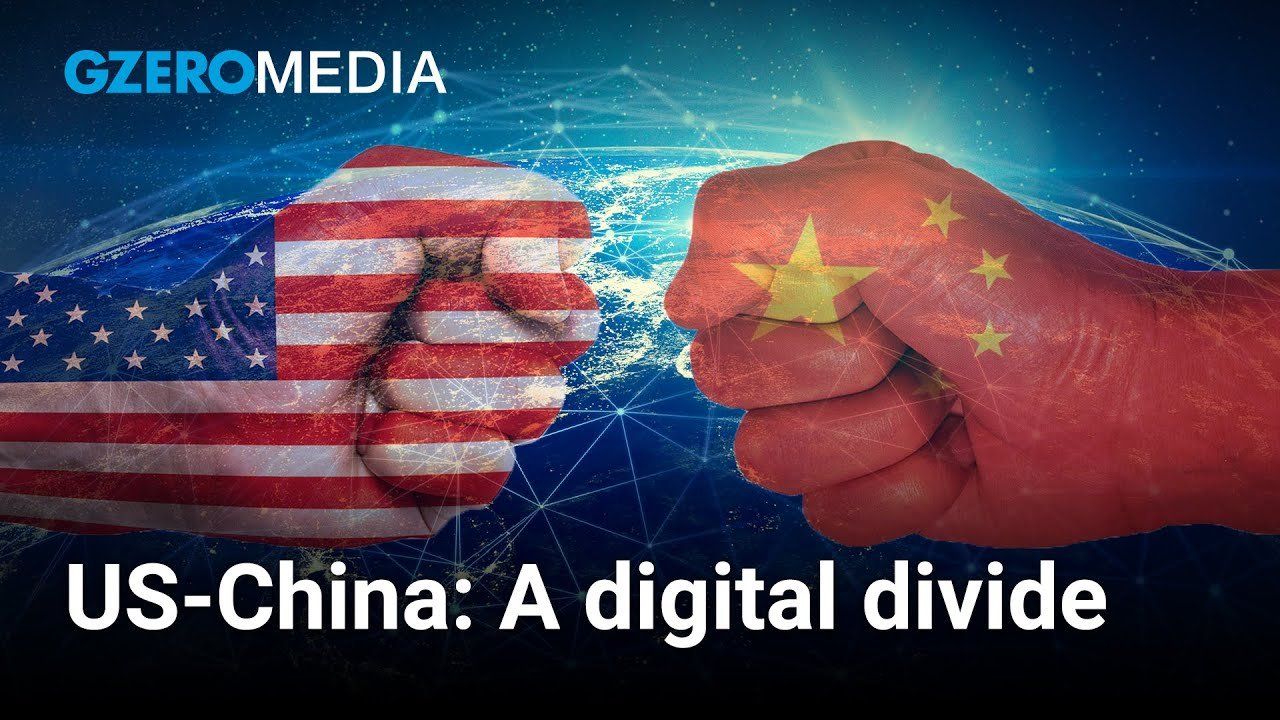
As the digital world continues to grow and evolve, there still exists a digital divide between the US and China. Alexis Serfaty, director of geotechnology at Eurasia Group, in a GZERO livestream presented by Visa, says that has long as US-China relations continue to be involved in a “tech cold war,” other countries, especially in developed regions, may find themselves compelled to take sides when it comes to adopting new technology infrastructure and standards. Global data divergencies and disparities in regulation of data would eventually fall on to the consumer, as their own experiences and standards would diverge, says Serfaty.
Serfaty goes on to say this alignment with either the US or China could also impact tech-related supply chains and global partnerships. An example lies in Europe, where despite some nations still utilizing Huawei equipment in their 5G networks, the European Union and several member states are progressively banning Chinese-made equipment. In parallel, the United States is poised not only to enhance its lead over China in advanced technologies but also to maintain that lead indefinitely.
The geopolitical tensions between the US and China in shaping the future of digitization is posing challenges and opportunities for nations striving to navigate this evolving digital landscape, highlights Serfaty.
To hear more about the challenges and opportunities that nation-states face when it comes to digitization, and how it could shape a more inclusive and resilient future, watch the full livestream here: